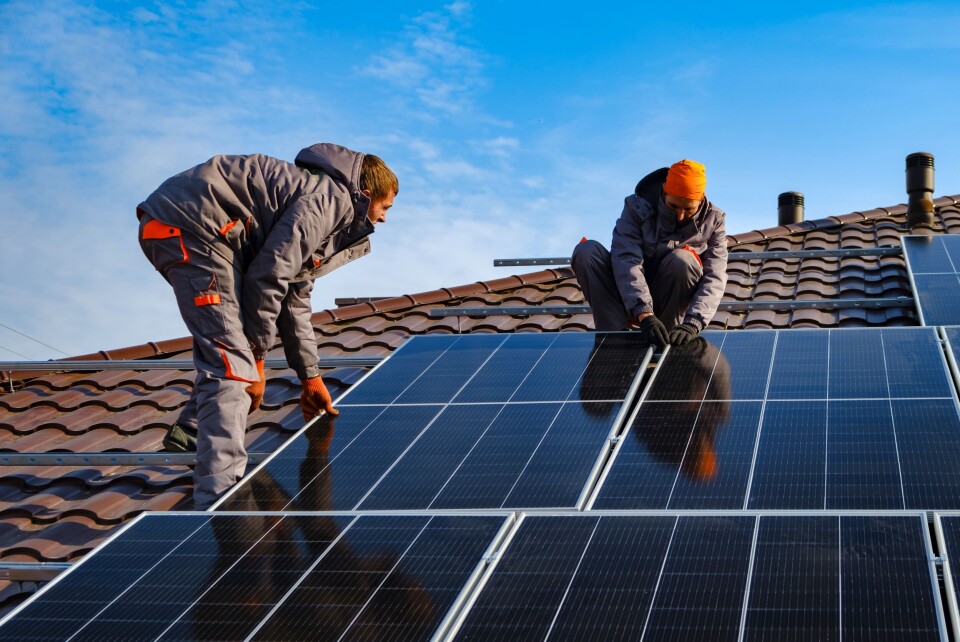-
New rules lower aid for home solar panels in France
Installation bonuses have also been cut as government looks to promote ‘self-consumption’ of power
-
Why France is reviewing reducing aid for solar panels
A new draft decree has caused concern among some in the renewable energy sector
-
Batteries used in solar panels in France recalled due to fire hazard
Companies nationwide used the batteries in domestic installations
‘We feel duped by French solar panel firm’ - 12 signs to look out for
A couple tell us how fitting solar panels on their French home has left them out of pocket

Homeowners are advised to check solar panel deals carefully after two Connexion readers say they were duped.
Linda and James Stewart-Brown, from Duras in Lot-et-Garonne, paid more than the going rate for both the panels and financing, despite taking what they thought were precautions.
Promised grants did not materialise, and the bank from which they borrowed €22,900 did not offer the 0% interest loan they were expecting.
Read more: French court rules against homeowner on ‘misleading’ solar panel deal
‘I signed the deal but then had doubts’
Mrs Stewart-Brown said: “We both read The Connexion and had heard warnings about scams in the energy renovation sector, so we thought we knew what we were doing.
“We had talked about getting solar panels but no one we knew locally would install them. It is difficult to get even everyday electrical work done in Duras.
“So when I got a cold call, I did not say ‘no’, and the next thing I knew, they had sent a young salesman round.”
He produced an estimate, which promised government grants of up to €6,000.
“I signed the deal but then had doubts,” Mrs Stewart-Brown said.
“I contacted Elsol/Elsun, the firm, to say I wanted to cancel.
“At the time, I was on a ship [Mr Stewart-Brown is a cruise ship captain] and doing it by satellite phone. I got an aggressive call from the boss saying it was not possible because they had already ordered the panels.
“I’m afraid that convinced us to go ahead.”
Read more: Rise in solar panel scams in France and how to spot the tricks
‘We were overcharged for the panels and the loan’
When the equipment was in, the installer asked her to sign just five pages of what turned out to be a 92-page document.
She refused and the original salesman returned to talk her through it, assuring her the grants and financing had been taken care of.
“We now realise that the panels and system should have cost around €15,000 at current prices, and the loan from Domo Finance [a bank set up by state electricity firm EDF and BNP Paribas for energy renovation loans] should have been 0% interest and not 3.59%.
“To top it all, the panels have cut our electricity consumption by just 30%, instead of the 70% we were promised.”
Elsol/Elsun did not respond to interview requests.
Domo Finance told The Connexion that it could not find a complaint from the couple in its file, and so could not comment.
‘The grant scheme was not explained to us’
Mrs Stewart-Brown said she did not realise that grants under the MaPrimeRénov’ scheme have to be approved with a written estimate before agreement to do the work is signed for.
“None of this was explained and it should have been,” she said.
She has since written to the Ministry for Energy Transition, with no reply, and intends to take up the matter with the DGCCRF consumer protection watchdog.
12 tips to avoid being caught out
1. Do not respond to cold-callers
2. Be careful who you give your telephone number to, either in person, over the phone, or on the internet. Contact information is often sold to unscrupulous companies
3. Watch out for callers who claim to be from official organisations or companies such as EDF, or to have mandates to call on behalf of such bodies. These organisations do not call or sub-contract selling
4. Take time to think about an offer and to compare it to others. If people push you to sign quickly, walk away
5. Check yourself if government grants promised by the company exist, if they apply to you, and whether you are eligible for them. Do this before you sign anything – most grants have to be settled before the estimate is signed
6. Check yourself that the company is properly accredited, especially that it has the ‘RGE’ certification required for government grants
7. Ask the company for references from clients in the area
8. Read thoroughly and understand what you sign. Some people find they have signed loan applications without realising
9. Do not be afraid to use the 14-day cooling-off period to walk away if you have doubts about what you signed
10. Do not hand over money or bank details straight away. Wait until you get official estimates and bills
11. Be careful about signing the attestation de fin de travaux. First, make sure that the work has been done to a good standard, that you have all the documents associated with it, and that devices such as smartphone apps to manage equipment work. The attestation often unblocks funds from the bank to the company, and if they are unscrupulous, you will not see or hear from them again.
12. If you are unhappy, your first port of call should be the government’s mediation service.
Find help here if you feel the company has mis-sold the product or if the work or equipment is sub-standard.
Related articles
Why the price of home solar panels is dropping fast in France
US-French couple give up on ‘frustrating’ home renovation grant
Up to 14,000 homes in France affected by solar panel firm collapse
























